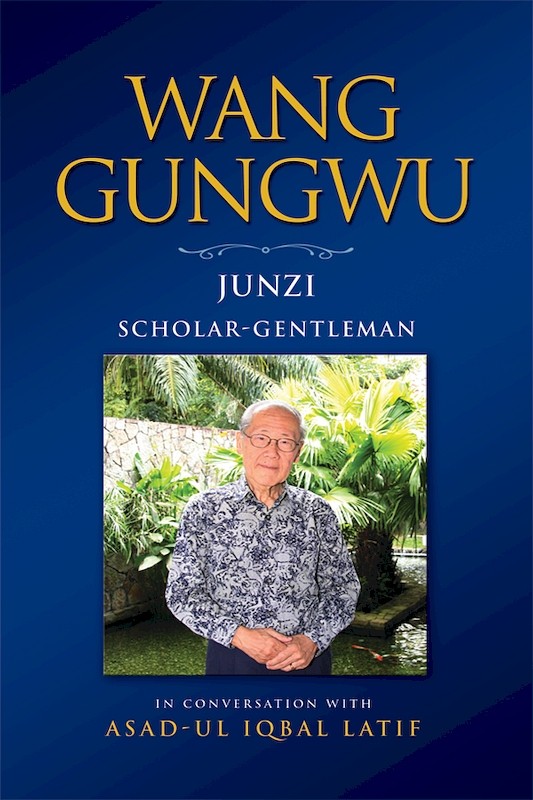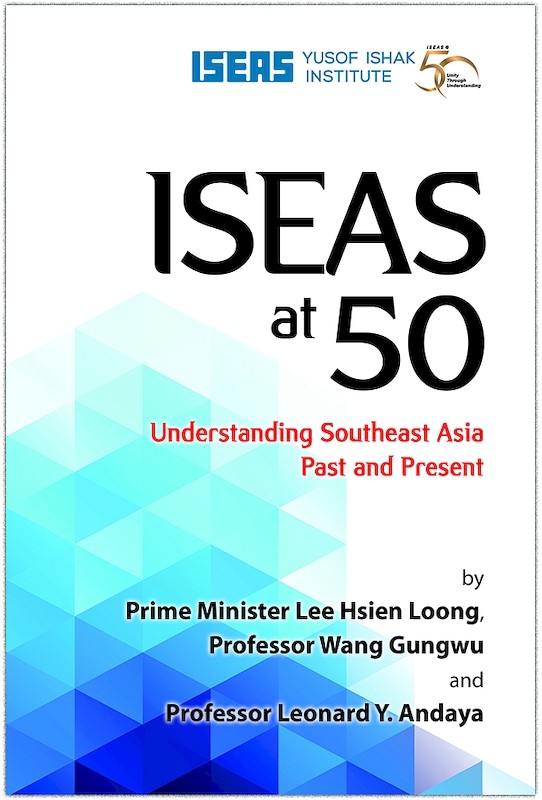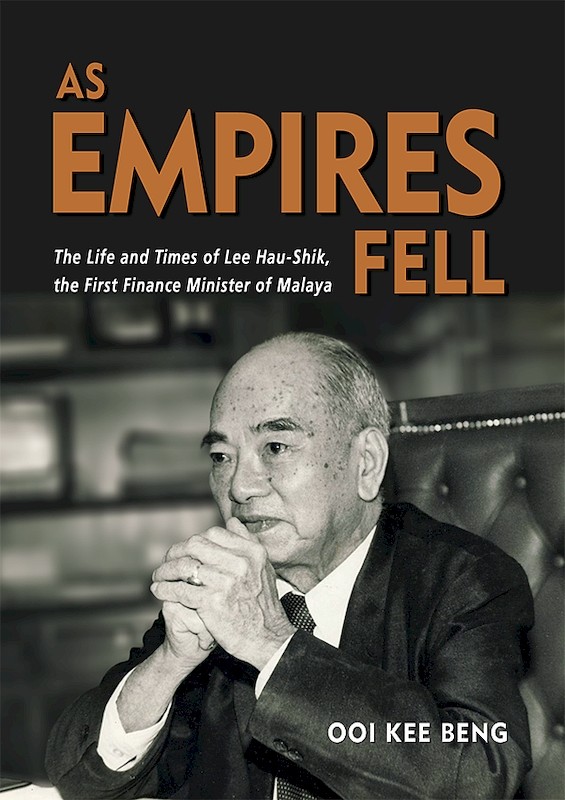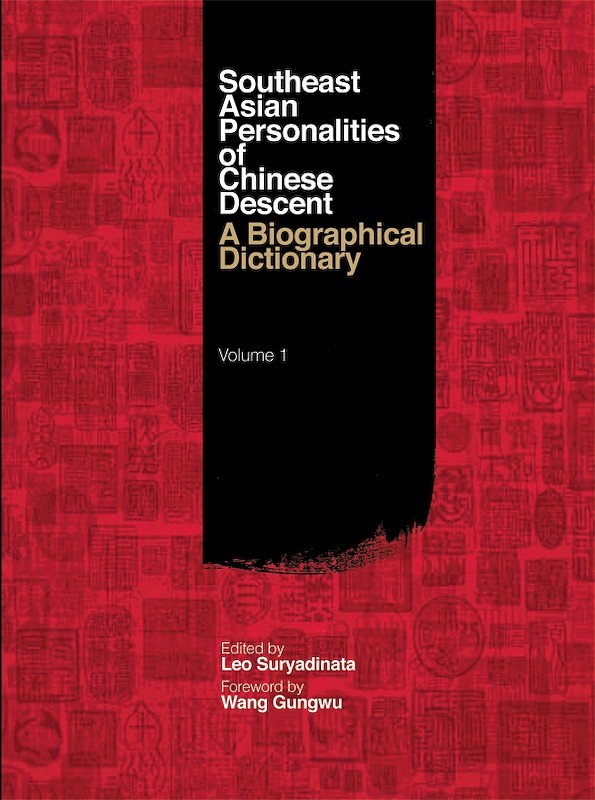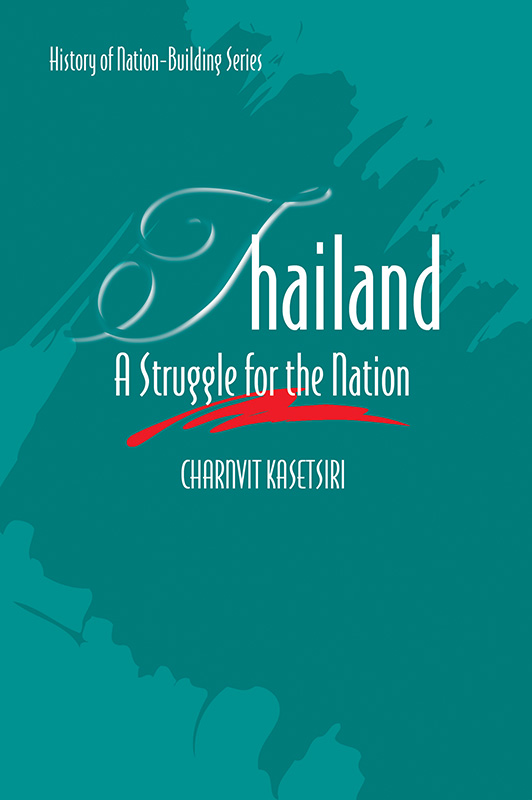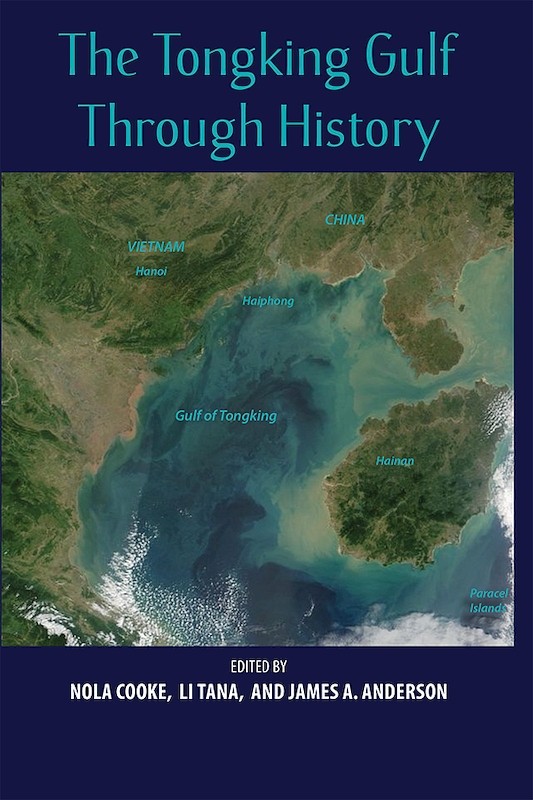The Eurasian Core and Its Edges: Dialogues with Wang Gungwu on the History of the World
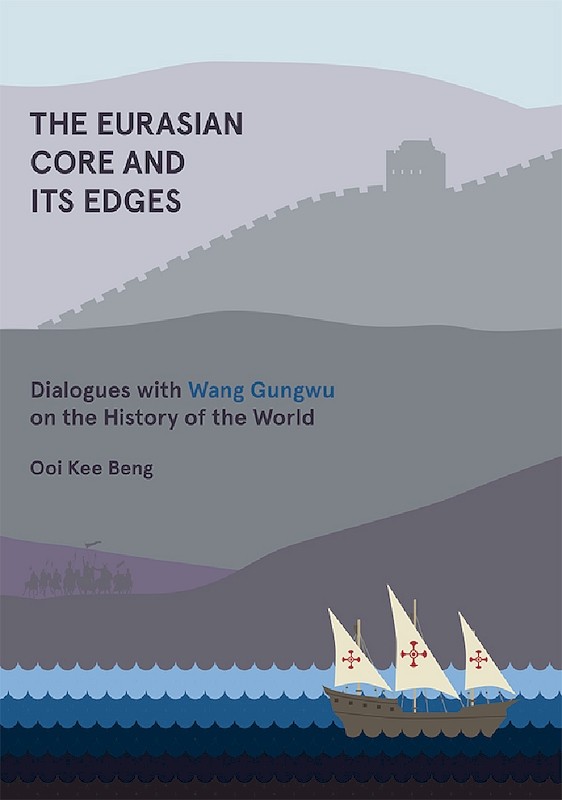
Ooi Kee Beng, author
Date of publication:
2014
Publisher:
Institute of Southeast Asian Studies
Number of pages:
254
Code:
BM509
Soft Cover
ISBN: 9789814519854
Reviews
Yang Bin, Journal of Southeast Asian Studies, Vol. 48 Issue. 1.
"This book is a delightful and rare opportunity to listen in on a series of dialogues between two renowned scholars, Wang Gungwu and Ooi Kee Beng, on a variety of interesting topics and global issues.
This volume's richness and depth renders any review superficial. The dialogues swiftly move from the contemporary to the ancient, and from one topic to another, from civilisation, empire, ethnicity, nation-sate and religion to the Silk Road, Confucianism, Southeast Asia, Singapore, and contemporary politics, from the Cold War to Maoism. They are also interdisciplinary, linking philosophy, archaeology, history, politics, economics and international relations.
The book covers such a wide range of topics that almost anyone would find something to intrigue them. Above all, it is the manner in which the dialogues unfold that make this book so readable, in Professor Wang's compelling responses, insightful comments and sparkling wit and wisdom. I believe that both scholars and common readers alike would find it a hard book to put down."
"Few Asians have taken up the challenge of examining the forces and developments, contacts and collisions, connecting and shaping the world's societies over the centuries. Although it has a somewhat limited focus (mostly Eurasia) and emphasizes the Big Picture rather than details, this innovative book illuminates the always interesting thoughts of a prominent Singapore-based Malaysian scholar, Wang Gungwu, and adds a new and largely Asian perspective through a dialogue with a younger Malaysian historian also working in Singapore, Ooi Kee Beng. In a series of interviews in 2013 the author, Ooi, skillfully posed thoughtful questions to Wang and compiled their extended conversations into this unconventional but intriguing book. The collaboration, which is loosely organized thematically rather than chronologically, should be of interest to specialists on world, European, Indian, Southeast Asian, and especially Central Asian and Chinese history. The result is like a rewarding and intellectually exciting graduate school seminar with a master historian bringing together his vast knowledge to ponder the broad structure of world history over several millennia.
Few historians are more qualified to explore and identify some of the main themes of such a vast topic. Wang Gungwu is one of the most outstanding, prolific, and wide-ranging historians of our generation. ....The book is full of arguments for other historians to consider. .... Despite the flaws and some debatable points, this is a stimulating book that may interest academic historians and can be used in a graduate seminar but not a survey course on world history, more a way of thinking about history rather than presenting it. Wang remains an active scholar and role model for many of us. Ooi and Wang should be congratulated for this book, which gives us access to Wang's learned and provocative thought late in his much-respected and influential career."
"Eminent academic Wang Gungwu, whose long years of learning, particularly on China, is the subject of Ooi Kee Beng's book, is able to connect even the most disparate dots to form a very sharp big picture of how civilisations developed and why East and West find it hard to see eye to eye. He does so by unleashing a series of insights into why and how geography and humanity's deepest-seated needs and wants shaped the world as we know it. He then pulls all these insights together to show how cogent and cohesive his view of the world is. All this add up to a book whose scope of ambition, elegant articulation and self-deprecating delivery is a class act. He expresses his thoughts so simply and precisely that even a teenager with the loosest grasp of history will be able to follow his compelling arguments. In fact, I would recommend that this primer on world history be on the required reading list for students of the General Paper or its equivalent. In shedding light on China, a land power, and the West, made up mostly of sea powers, Wang gives readers the key to unlock the seemingly inscrutable Chinese psyche. In doing so, he consistently casts China as a benign giant which is riling its neighbours with its action in the South China Sea in its bid to boost its naval chops. Wang and Ooi are careful to show how the twists and turns of various countries' histories are relevant to everyone's lives today. For example, in only 250 years, the United States has built up so much naval power that it controls most of the world's coasts. So every time China tries to 'get its foot in' sea-wise, Wang says, it gets 'scolded' by the West" (The Straits Times).
Like Paul Kennedy’s The Rise and Fall of Great Powers, Jared Diamond’s Guns, Germs and Steel and Ian Morris’s Why the West Rules – For Now, Wang Gungwu provides a unified way of understanding the giant arc of history. The key arguments here — that world history can be read as the gradual shift of power from the Eurasian core to its western and eastern edges, that the contest between the nomadic societies of Central Asia and the agrarian states of Europe and China led to the emergence of Western and Chinese civilizations, and that maritime power eventually enabled continental powers to achieve global dominance — are compelling and intriguing. They provide a powerful frame for making sense of seemingly disconnected historical phenomena. This central narrative is augmented by delightful and insightful side trips — to the Confucian order in imperial China, how Southeast Asia fits into the story, the British fascination with small islands, contemporary China’s struggle to balance continental with maritime power, and many more. The breadth of the issues covered, and the depth and profundity of Prof Wang’s analysis, are as dazzling as they are absorbing. That the book is written in the interview format invites the reader into the classroom of a master teacher, and encourages him to engage in a conversation with one of Asia’s greatest historians.
—Donald Low, Associate Dean (Executive Education and Research)
Lee Kuan Yew School of Public Policy, National University of Singapore
Lee Kuan Yew School of Public Policy, National University of Singapore
Drawing on a lifetime of learning and acute insights of one of the foremost historians of our time, this history of the world, lucidly told, as it were, in one breath, cannot but leave the reader breathless. Through a masterful execution of the dialogic method, these pages weave together a rich but tight historical tapestry that spans not only continents and centuries, but also the ideas that mattered. This book is for a generation, maybe two, that needs to have a concise grasp of world history today in order to understand the world tomorrow.
—Hui Yew-Foong, Research Associate Professor, Department of Sociology
Senior Research Fellow, Contemporary China Research Center, Hong Kong Shue Yan University
Senior Research Fellow, Contemporary China Research Center, Hong Kong Shue Yan University
About the publication
With China's transformation into a republic after two millennia as an empire as the starting point, Ooi Kee Beng prompts renowned historian Wang Gungwu through a series of interviews to discuss China, Europe, Southeast Asia and India. What emerges is an exciting and original World History that is neither Eurocentric nor Sinocentric. If anything, it is an appreciation of the dominant role that Central Asia played in the history of most of mankind over the last several thousand years.
The irrepressible power of the Eurasian core over the centuries explains much of the development of civilizations founded at the fringes - at its edges to the west, the east and the south. Most significantly, what is recognized as The Global Age today, is seen as the latest result of these conflicts between core and edge leading at the Atlantic fringe to human mastery of the sea in military and mercantile terms. In effect, human history, which had for centuries been configured by continental dynamics, has only quite recently established a new dimension to counteract these. In summary, Wang Gungwu argues convincingly that "The Global is Maritime".
The e-chapter on " Of Core and Edges" , is downloadable free of charge.
The irrepressible power of the Eurasian core over the centuries explains much of the development of civilizations founded at the fringes - at its edges to the west, the east and the south. Most significantly, what is recognized as The Global Age today, is seen as the latest result of these conflicts between core and edge leading at the Atlantic fringe to human mastery of the sea in military and mercantile terms. In effect, human history, which had for centuries been configured by continental dynamics, has only quite recently established a new dimension to counteract these. In summary, Wang Gungwu argues convincingly that "The Global is Maritime".
The e-chapter on " Of Core and Edges" , is downloadable free of charge.
Contents
-
The Eurasian Core: Dialogues with Wang Gungwu on the History of the World
[Whole Publication, ISBN: 9789814519861], by Ooi Kee Beng, author -
Preliminary pages
-
1. Of Core and Edges
-
2. The Two-Ocean Mediterranean
-
3. Southeast Asia and Foreign Empires
-
4. China's Struggle with the Western Edge
-
5. Combining Continental and Maritime Power
-
Epilogue
-
List of Publications by Wang Gungwu since 2008
-
Index
-
About the Author
-
Photo plates

